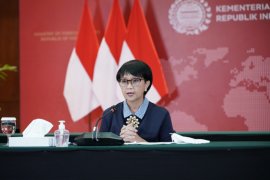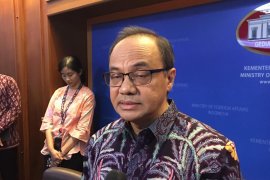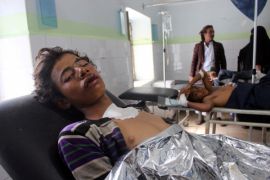Saleh`s comments have stirred up anger among female protesters in the country, who claimed Saleh`s words "stained their dignity" and held protests along with male protesters in nine provinces include Sanaa, Al-Hudayda, Ibb, Taiz, Al-Bayda, Aden, Hadramout, Shabwa and Dhamar.
In Sanaa, the protesters moved from their sit-in square near Sanaa University to the office of the Public Prosecutor to lodge a complaint against President Saleh, a day after female protesters filed a lawsuit against Saleh.
But Public Prosecutor Abdullah al-Olufi said he has no legal authorities to investigate into the case against President Saleh, the official Saba news agency said on Sunday.
At least 10 protesters were wounded by gunshots of police forces in clashes in Sanaa, witnesses told Xinhua.
Elsewhere in the southern province of Dhamar, some 60 km south of Sanaa, clashes left at least 30 anti-government protesters injured, according to Fahd al-Minify, one of the rally`s organizers.
Meanwhile, President Saleh told hundreds of women who rallied on Sunday near the presidential palace in Sanaa that he did not mean any accusation against female protesters in his speech last Friday, said Saba.
"I just called the opposition to reject the mixing of unrelated female and male protesters as it is forbidden by Islam," he said, adding "I made that call to protect the Yemeni women from the mobs and anarchists who are using women only to gain votes in the elections."
Sunday`s protests came simultaneously with delegations of Yemeni government and the opposition headed for Riyadh, Saudi Arabia, to participate in an extraordinary meeting of foreign ministers of the Gulf Cooperation Council (GCC), which aims to seek solutions for Yemeni current political crisis and to clarify the recent GCC initiative. (*)
Editor: Kunto Wibisono
Copyright © ANTARA 2011










